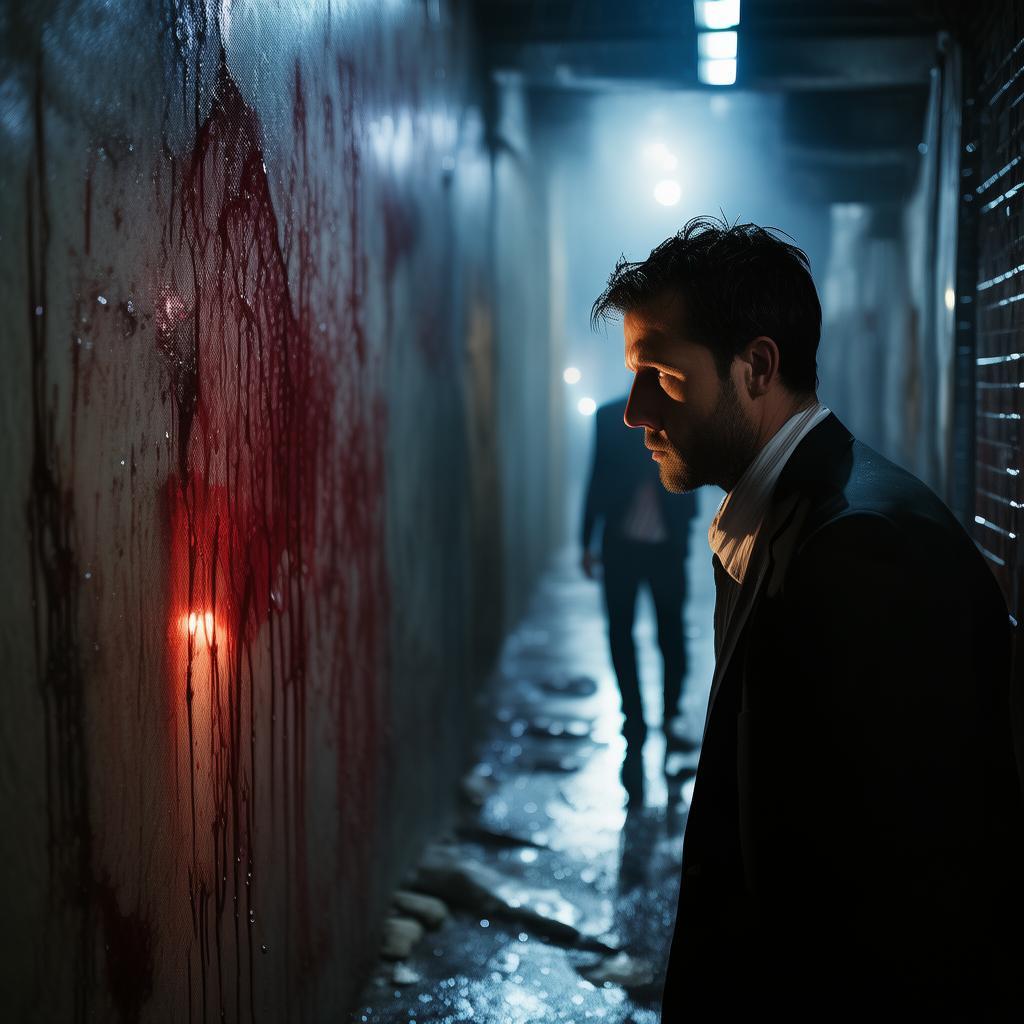The Silent Echoes of Ineptitude: A Tale of the Unseen Conspirators
The sun dipped below the horizon, casting long shadows over the desolate streets of Yangon. A young woman named Aung Thi, with a heart heavy with the weight of her country's turmoil, moved through the city with a sense of urgency. She had just received a cryptic message from an unknown source, detailing the existence of a shadowy organization orchestrating the recent spate of gun violence that had left the city in disarray.
Aung Thi's life had been a tapestry of quiet resistance. She worked as a librarian, a seemingly mundane job that allowed her to observe and absorb the world around her. But tonight, everything changed. The message was a piece of a puzzle she had been piecing together for months, a puzzle that seemed to lead to the heart of the Myanmar gun massacre.

As she navigated the labyrinthine alleys of the city, she couldn't shake the feeling that she was being watched. The streets were quiet, save for the occasional distant wail of a siren, a reminder of the chaos that lay just beneath the surface. She had to find the source of the message, to uncover the truth behind the violence.
Her journey led her to a small, dimly lit café on the outskirts of the city. The owner, an elderly man with a weathered face, seemed to sense her purpose. He handed her a worn-out journal, its pages filled with cryptic notes and sketches of the city's landmarks. Aung Thi knew this was the first step in unraveling the conspiracy.
The journal led her to a series of meetings with various individuals, each one more dangerous than the last. She met with a street vendor who whispered about the unseen conspirators, a group of elite soldiers who had turned against their own government. They were the ones pulling the strings, she was told, and they were not above using violence to achieve their goals.
As Aung Thi delved deeper, she discovered that the conspiracy was far more complex than she had ever imagined. It involved not just the elite soldiers, but also corrupt politicians, international arms dealers, and even elements within the police force. The scale of the conspiracy was breathtaking, and the stakes were unimaginable.
Her quest for the truth brought her face-to-face with the leader of the unseen conspirators, a man known only as "The Puppeteer." He was a tall, imposing figure with piercing eyes that seemed to see right through her. He taunted her with the knowledge that she was a pawn in a much larger game, and that her life was in danger.
Aung Thi's resolve never wavered. She knew that if she were to survive, she had to outwit her enemies. She began to weave together the pieces of the puzzle, using her intelligence and the journal's clues to locate a hidden cache of weapons. The cache was a treasure trove of information and evidence that could bring the conspirators down.
The night of the heist was tense and fraught with danger. Aung Thi and a small group of allies, including the street vendor and a former soldier who had turned against the Puppeteer, infiltrated the heavily guarded facility. The battle was fierce, with bullets flying and lives hanging in the balance. In the end, Aung Thi managed to secure the cache, but at a great cost. The street vendor was killed in the crossfire, and the former soldier was gravely injured.
With the evidence in hand, Aung Thi faced a difficult decision. She knew that revealing the truth would put her own life in danger, but she also knew that the people of Myanmar deserved to know the truth about the violence that had plagued their country. She turned over the evidence to a trusted journalist, who promised to publish the story.
The publication of the story sent shockwaves through the country. The public was appalled by the revelations, and the government was forced to act. The Puppeteer and his conspirators were apprehended, and the elite soldiers who had turned against their own country were brought to justice.
Aung Thi's journey had come to an end, but the scars of the Myanmar gun massacre would never fade. She had fought against the unseen conspirators, and though she had won the battle, the war against corruption and violence was far from over. She had become a symbol of hope and resistance, a reminder that even in the darkest of times, the truth could still be found.
As she walked away from the café, the echoes of the gunshots and screams still lingered in her mind. But she also heard the soft whisper of the street vendor's voice, a reminder of the sacrifice that had been made. She knew that her journey was far from over, but she was ready to face whatever challenges lay ahead.
In the end, Aung Thi Thi was not just a survivor of the Myanmar gun massacre; she was a hero. Her story would be told, and the truth would be known. The silent echoes of ineptitude had been replaced by the resounding call for justice.
✨ Original Statement ✨
All articles published on this website (including but not limited to text, images, videos, and other content) are original or authorized for reposting and are protected by relevant laws. Without the explicit written permission of this website, no individual or organization may copy, modify, repost, or use the content for commercial purposes.
If you need to quote or cooperate, please contact this site for authorization. We reserve the right to pursue legal responsibility for any unauthorized use.
Hereby declared.









